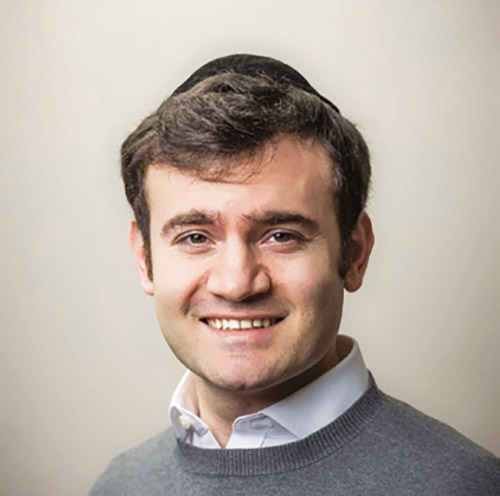
(Courtesy of Touro University) Word on the street is that Orthodox communities are facing a shidduch crisis, with many bemoaning the supposed surplus of eligible women in relation to eligible men. But new research published this month in the Journal for the Scientific Study of Religion (JSSR) by Dr. Yosef Sokol, a researcher and professor in the new PsyD program at Touro University’s School of Health Sciences, shows that many anxiety provoking beliefs about the shidduch system are not actually true. The data tells a different story.
Dr. Sokol, with others on his research team, collected information on nearly 9,000 members of the Yeshiva Orthodox (YO) and Modern Orthodox (MO) communities in North America. Survey respondents self-identified as YO or MO. The survey—the largest of its kind on this demographic to date—explored how age at first marriage varies across gender and cultural affiliation.
A number of the key findings refuted common myths about the perceived shidduch crisis. For one, the prevalence of singlehood in Orthodox communities is lower than one might expect given the widespread hand wringing.
The study found that in Yeshiva Orthodox circles, 92 percent of both men and women were married by age 30. By age 40, that number was about 98 percent.
Rates of marriage were somewhat lower in Modern Orthodox communities, where 81 percent of men and women were married by age 30. Just under 90 percent were wed by 40.
Another widely held belief is that there is a large disparity in marriage rates between men and women. Not so, says the study. In Yeshiva Orthodox communities, for instance, about 88 percent of men and 92 percent of women are married by age 28.
“While these numbers may or may not be considered a crisis depending on your viewpoint they don’t seem to match what many people fear is happening,” said Dr. Sokol.
The impression that there is a marriage crisis afoot has many negative effects. Orthodox singles report feelings of anxiety, shame, inferiority and a lack of identity. They also mention social consequences, including public pity. In addition, fear of spinsterhood puts undue pressure on many women to marry young.
In performing the study, Dr. Sokol sought to alleviate some of that angst.
“People think there’s a shidduch crisis, they panic, and may choose someone, or push their children to choose someone, that might not be good for them,” he said. “Of course, the community should support singles and their families and continue to be sensitive to those who are waiting to find their bashert, but I hope my research can provide more accurate information about our marriage system, help relieve some of the widespread anxiety and enable singles, community members and leaders to make more informed decisions. I believe our community needs more data based approaches to identify solutions and programming that will be most likely to help.”
The research team included Dr. Yosef Sokol, Dr. Naomi Rosenbach, Dr. Yitzchak Schechter, Chayim Rosensweig, Chynna Levin and Shifra Hubner.













